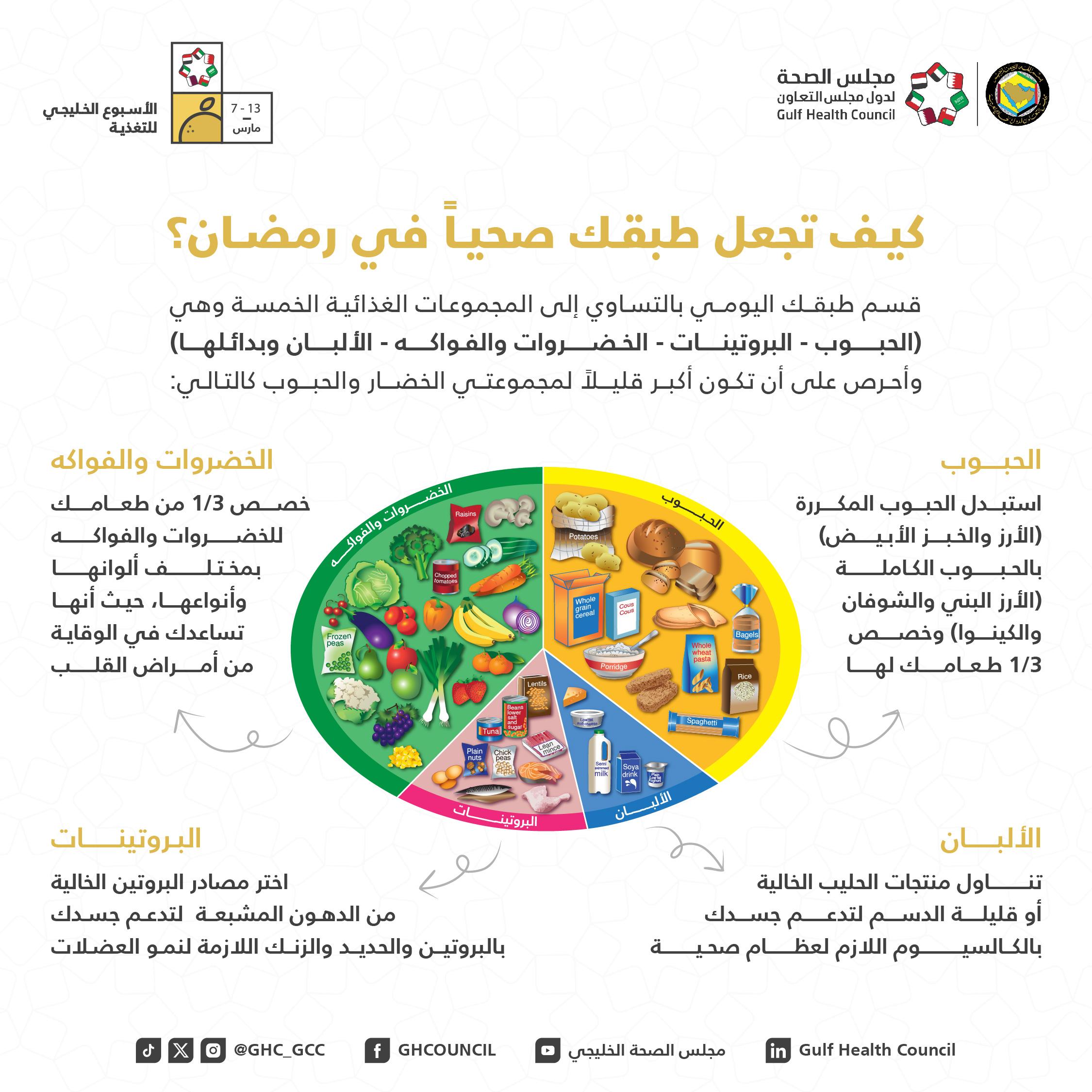As part of the Gulf Nutrition Week activities, the Gulf Health Council, in collaboration with the health ministries of the member states, is participating from March 7 to March 13, 2024. This participation is a testament to the active engagement with this significant event, during which the Council has provided a series of educational infographics to the ministries in the member states. This initiative reflects the Council’s commitment to enhancing the exchange of expertise in the fields of health and awareness.
The celebration of Gulf Nutrition Week aims to develop nutritional health awareness among Gulf communities due to the similarity in their food consumption patterns, which have contributed to the emergence of unhealthy dietary habits across different demographics, potentially leading to various health issues. Furthermore, the celebration seeks to spread and reinforce the culture of choosing balanced, healthy food and promoting healthy lifestyle choices, which in turn can reduce the burden of diseases caused by unhealthy nutrition.
On this occasion, the Gulf Health Council released a set of educational infographics to introduce healthy habits during Ramadan and how to make your plate healthy, including how to evenly divide your daily plate into the five food groups: grains, proteins, vegetables and fruits, dairy and its alternatives, with a focus on slightly larger portions for vegetables and grains. It advises replacing refined grains (white rice and bread) with whole grains (brown rice, oats, and quinoa), dedicating a third of your plate to them, as well as a third to a variety of vegetables and fruits, which can help prevent heart diseases. It recommends consuming low-fat or non-fat dairy products to provide your body with the necessary calcium for healthy bones and choosing lean protein sources to support your body with protein, iron, and zinc needed for muscle growth.
Notably, the Council has recommended four steps to build healthy eating habits during Ramadan, including gradually changing one habit at a time, such as incorporating new vegetables into breakfast, making half of your plate fruits and vegetables, opting for fruits instead of juices, replacing frying in oil with using an air fryer, and setting aside at least 30 minutes for walking between the iftar and suhoor meals.

